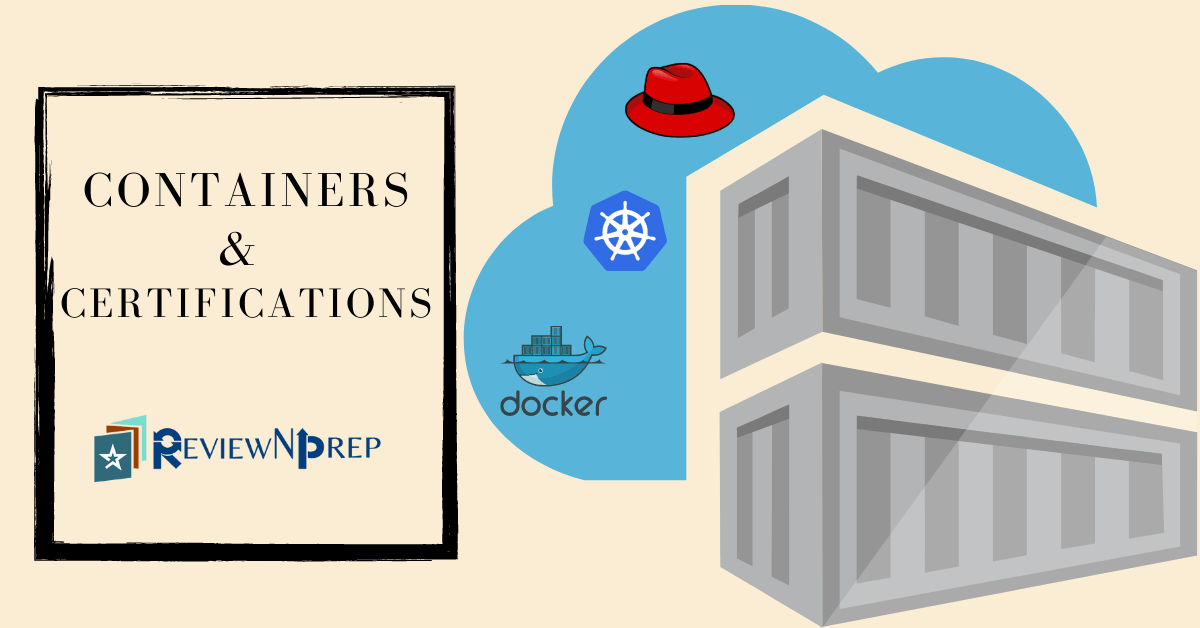|
|
Containerization is one of the most important steps you can take to improve your application’s performance. Containerization not only makes your application more portable, but it also enables it to run on a wider variety of hardware and operating systems. For example, developers can easily port their application from a desktop computer to a virtual machine (VM) or from a Linux to a Windows operating system. These containers can run either on a virtualized infrastructure or on a bare metal server, either on-premise or in the public cloud.
Containerization fixed the age old problem of “It worked on my machine”.

Table of Contents
What Does It Mean To Containerize An Application?
Containerization is the packaging of software code together with just the operating system (OS) libraries and dependencies required to run the code into a single lightweight executable called a container. It then creates a consistent environment for running the code across any infrastructure.
When you containerize an application, you create a package that contains all of the files and dependencies required to run the application. You then can run the container on any system that has a compatible version of the docker engine installed. This includes systems like Amazon EC2, Google Compute Engine, Microsoft Azure, and IBM BlueMix.
To optimize the performance of your application, you can containerize it using Docker. This makes the application run inside a virtual environment, which reduces its overhead and makes it more responsive. You can also use containers to isolate different parts of your application from each other, which can improve overall performance.
Blog
How To Containerize An Application Using Docker?
The easiest way to containerize an application is to use docker. With docker, you simply create a Dockerfile and build an image from it. You can then deploy the image on any system that has a compatible version of docker installed.
At a high level the steps involved are:
- Install Docker
- Create a file called Dockerfile
- Build the image
- Run the image
Users can pick up images from Docker Hub (the world’s largest public repository of image containers) and use them to create customized images and containers.
How To Containerize An Application Using Kubernetes?
If you want to containerize an application that uses a lot of stateless services, then you should consider using Kubernetes. With Kubernetes, you can create a cluster and deploy your containers into it. This way, the containers (or each containerized application) are isolated from each other and from the rest of the system.
To run an application on a cluster, you need to package your app into a container, create a Docker image from the container, and then push the image to the Docker registry. Next, you need to decide which image should be installed onto Kubernetes nodes. Kubernetes manages containers using a mechanism called Pods.
What Are The Container Certifications Available?
There are a number of different container developer certifications available. The major certifying authorities include Docker, CNCF and RedHat. Additionally, all major cloud providers have DevOps Certifications like AWS Certified DevOps Professional, Microsoft Azure Certified DevOps AZ-400, Oracle Cloud Infrastructure DevOps to name a few.
Lets us talk about some of these certification exams in more detail.
Docker Certified Associate (DCA)
The Docker Certified Associate (DCA) certification is the entry-level certification for developers who want to become certified in Docker. The certification covers a variety of topics like creation of images, containers, swarms, volumes, and networks; define Docker security client bundles and client-server authentication; and more.
- Exam Duration: 90 minutes
- Total Questions: 55 (13 multiple choice and 42 discrete-option multiple choice)
- Passing Score: 70%
- Exam Fees: $250
- Exam Topics:
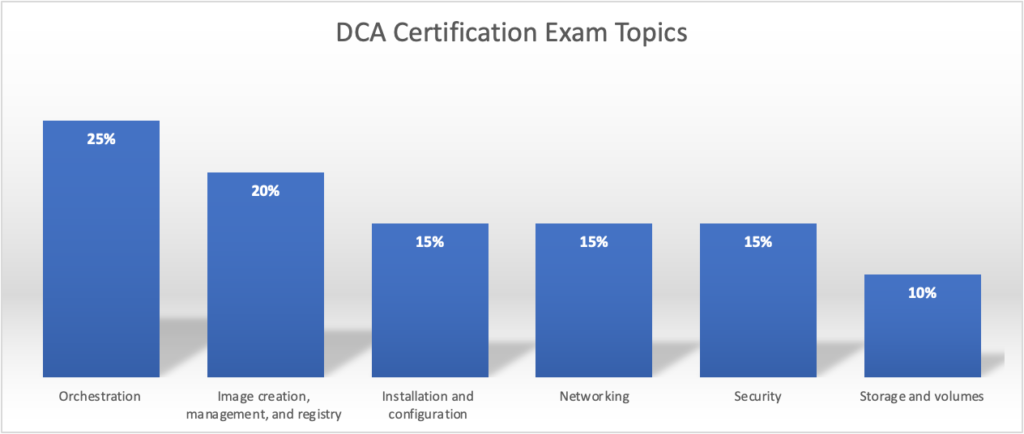
Certified OpenStack Administrator Exam (COA)
The Certified OpenStack Administrator (COA) exam is a certification offered by the Cloud Native Computing Foundation (CNCF). The COA certification is for individuals who want to become certified in deploying, managing and monitoring OpenStack clouds. The exam is three hours long and covers topics such as deploying OpenStack, managing clusters, networking and security in OpenStack deployments, and monitoring the health of an OpenStack cloud.
- Exam Duration: 180 minutes
- Total Questions: The exam is 100% hand-on, no multiple choice.
- Exam Fees: $400
- Exam Topics:

Kubernetes and Cloud Native Associate certification (KCNA)
The Kubernetes and Cloud Native Associate certification (KCNA) is the intermediate-level certification for developers who want to become certified in Kubernetes.
- Exam Duration: 90 minutes
- Total Questions: 60
- Passing Score: 75%
- Exam Fees: $250
- Exam Topics:
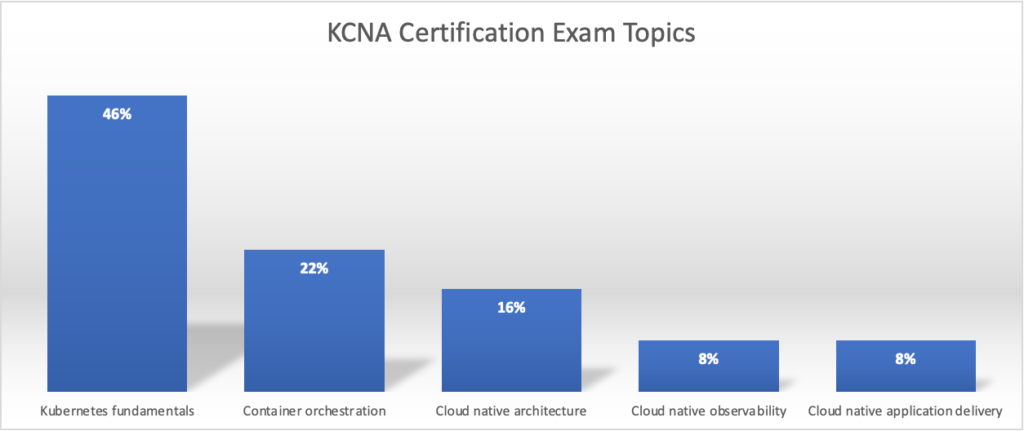
Kubernetes Certified Administrator (CKA)
The Kubernetes Certified Administrator (CKA) certification is the highest level of certification offered by the Kubernetes project. The CKA certification is for individuals who want to become certified in managing Kubernetes clusters. The exam covers topics such as deploying and managing Kubernetes, working with services, understanding data stores, and using Helm.
The CKA exam is an open-book exam. You have access to the below resources:
CKA Exam Details
- Exam Duration: 120 minutes
- Total Questions: 17
- Passing Score: 66%
- Exam Fees: $375 USD
- Exam Topics:
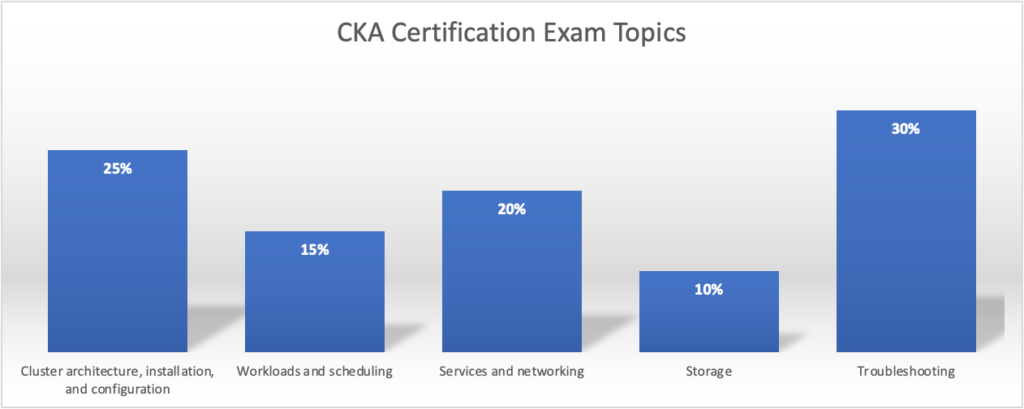
Certified Kubernetes Application Developer Certification (CKAD)
The Certified Kubernetes Application Developer certification (CKAD) is the advanced-level certification for developers who want to become certified in Kubernetes. The exam is 120 minutes long and covers topics such as designing and deploying applications with Kubernetes, using cloud storage with Kubernetes, monitoring and managing applications with Kubernetes, and troubleshooting issues.
The questions are all practical—you will need to create Kubernetes objects, consume existing objects, debug existing (but failing) objects, and query the cluster.
- Exam Duration: 120 minutes
- Total Questions: 19
- Passing Score: 66%
- Exam Fees: $375 USD
Exam Topics:
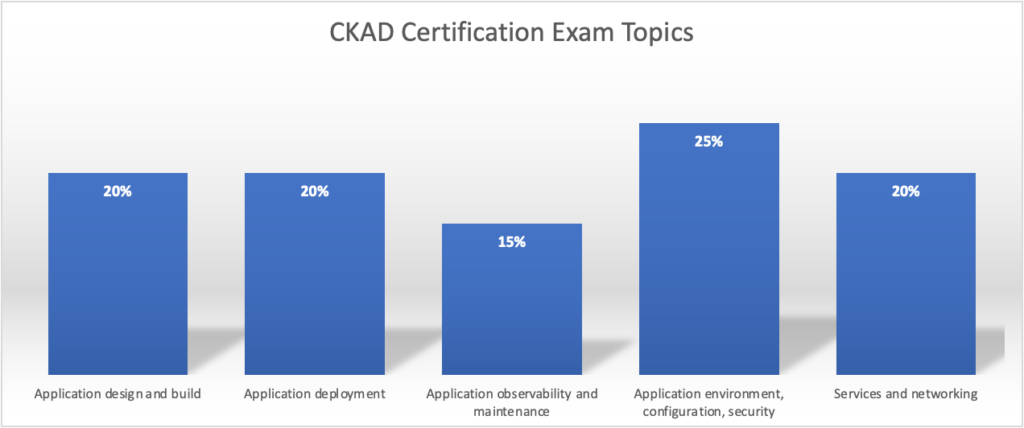
Certified Kubernetes Security Specialist (CKS)
The Certified Kubernetes Security Specialist (CKS) is the advanced-level certification for developers who want to become certified in Kubernetes. The exam covers topics such as understanding security concepts in Kubernetes, designing and deploying secure applications with Kubernetes, monitoring and managing security in Kubernetes, and troubleshooting issues.
- Exam Duration: 120 minutes
- Total Questions: 17-19
- Passing Score: 67%
- Exam Fees: $375 USD
- Exam Topics:
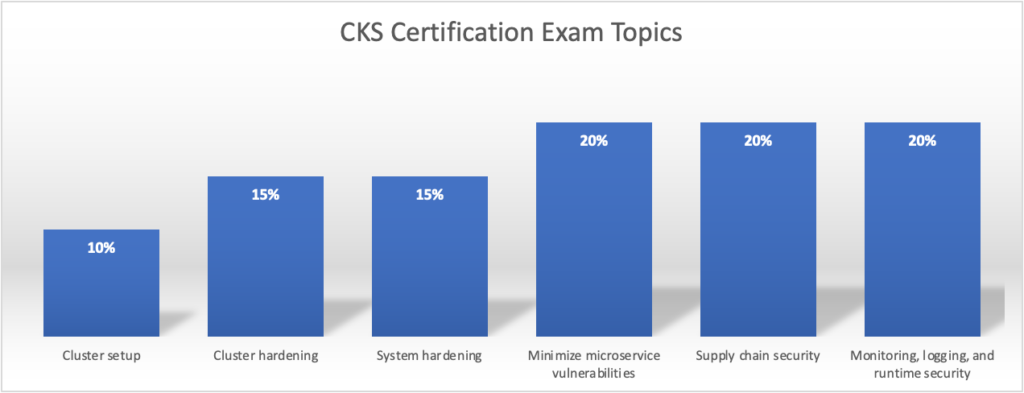
Red Hat Certified Specialist in Containers and Kubernetes Administration Certification
The Red Hat Certified Specialist in Containers and Kubernetes Administration certification (RHCCKA) is the advanced-level certification for administrators who want to learn how to manage a Kubernetes deployment. The exam covers topics such as understanding containerization concepts, setting up a containerized environment, deploying containers with Kubernetes, monitoring and managing containers with Kubernetes, and troubleshooting issues.
- Exam Duration: 120 minutes
- Total Questions: Hands-on, practical exam
- Exam Fees: $400 USD
- Exam Topics:
- Implement images using Podman
- Manage images
- Run containers locally using Podman
- Basic OpenShift knowledge
- Creating applications in OpenShift
- Troubleshoot applications in OpenShift
Conclusion
Containerization has taken the cloud computing to the next level. Large scale web deployments like Google, Netflix and Twitter and platform providers such as Heroku, Salesforce and dotCloud, all run on container technology.
Docker container and Kubernetes are excellent technologies to have in your DevOps tool-belt. Containerization makes the deployment easy. Additionally, you can replace the whole container image with a new one with few simple key strokes.
Further Reading:
Blogs
